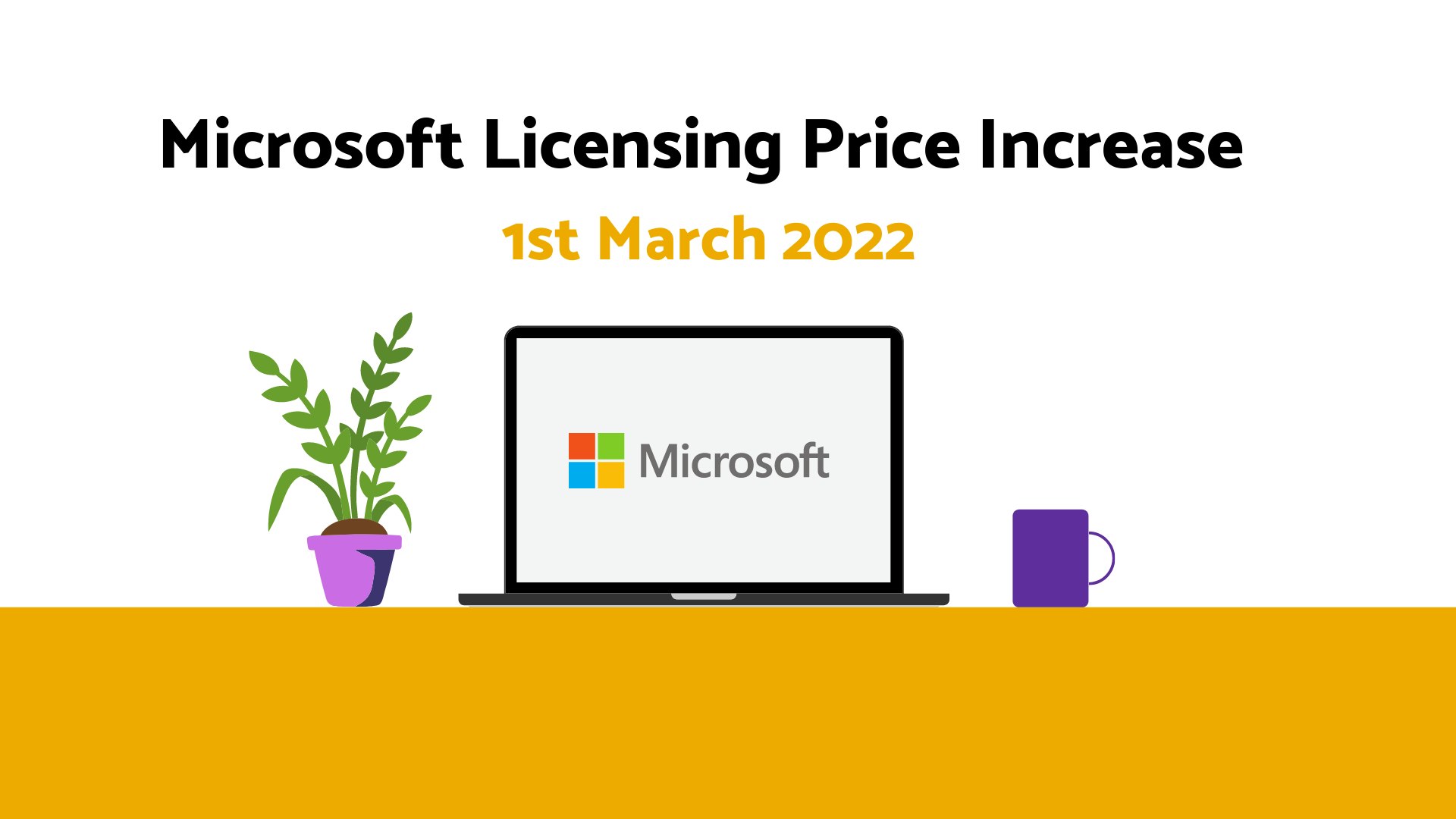On the 1st March 2022, Microsoft will be implementing a global price increase of 10-33% per user/month across Microsoft 365 Business products.
This is the first price increase of Microsoft commercial licensing products in over ten years, including Microsoft 365 (M365) and some Office 365 (O365) Licenses.
Why are M365 and O365 Licenses increasing in price?
Microsoft has continuously improved its products and accelerated innovation over the past decade. According to Microsoft, the price increases reflect the improvements and investments they are making to their core business offerings across Microsoft 365, such as Microsoft Teams, PowerBI, OneDrive, Yammer, Whiteboard, Power Automate, Stream, and Power Apps.
How does the price increase affect your Microsoft Licensing?
Microsoft will be increasing the price per user per month of Enterprise and SMB products shown below. (These are estimated costs based on $ pricing, the actual final prices in GBP may vary slightly):
Enterprise License (1st March 2022)
- Microsoft 365 E3 from £28.10 to £31.60 (12.5% increase)
- Microsoft 365 E5 from £30.80 to £33.45 (8.5% increase)
- Microsoft 365 E3 from £17.60 to £20.25 (15% increase)
- Microsoft 365 E1 from £6.00 to £7.50 (25% increase)
SMB Licence (1st March 2022)
- Microsoft 365 Business Basic from £4.55 to £6 (31.8% increase)
- Microsoft 365 Business Premium from £15.10 to £16.60 (10% increase)
Can you keep the current 365 Prices?
It may be possible to fix current pricing for a one or three-year term (depending on your plan) if it's renewed before the 1st March 2022 (monthly payments will still be an option).
As a Microsoft Silver Partner and Microsoft Licensing reseller, the NetMonkeys troop is committed to making the price increase a seamless transition for all of our clients who have any of the above Microsoft Licensing in place.
Get in touch
If you would like more information about the Microsoft 365 & Office 365 Licensing price increase, please don't hesitate to get in touch with our support team and we will guide you through the best options for your business.
Related posts
Visit blog
How Much Does IT Support Cost for a Small Business? A Complete Guide
IT support encompasses a range of services designed to maintain and optimise technology infrastructure. For small businesses, this can include network management, hardware and software troubleshooting, cybersecurity, cloud services, data backup, and user assistance

ERP Implementation Cost Guide: Key Considerations, Strategies, and Planning Insights
This article explores the main factors that influence ERP implementation expenses, hidden considerations, and strategies for maximising return on investment.

What is ERP Implementation Life Cycle? A Complete Guide
However, implementing an ERP system is not a one-time activity; it is a structured process known as the ERP implementation life cycle
